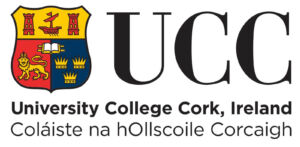MA in Celtic Civilization
Key Points
This course deals with the history of Celtic peoples from central Europe to Ireland, and from the Iron Age to the Middle Ages. The focus is on Ireland’s affinities with the outside world – our European heritage in prehistoric times and the way Ireland influenced European culture in the early Christian period. Celtic literature, mythology, languages, lore, and Celtic saints are particular subjects of study.
Students are encouraged to develop their skills in careful reading of the sources. You will have the opportunity to study medieval Welsh and Latin, and take advanced courses in literary studies, palaeography, and text editing. Supervised independent research is planned to allow you to broaden and deepen your academic interests, while a 20,000-word thesis gives postgraduates scope to complete meaningful work in a specific area of interest.
Upon successful completion of this course, you should be able to:
- Identify basic Old Irish grammar forms and translate sentences that illustrate their use.
- translate selected passages from medieval Welsh prose
- transcribe early Irish texts from handwritten sources
- write and present a seminar paper on an agreed topic
- Present the results of supervised research on a topic within the discipline in the form of a fully annotated thesis.
Program Structure
Course practices
For the one-year full-time option, you must choose modules worth 50 credits. Most modules are worth 10 credits and involve weekly classes during the academic year (24 weeks). Depending on the options, a full-time student will have a minimum of 5 classes per week (although many will also include weekly assignments); Students may also choose to attend the two-day paleography workshop held annually in early September. For supervised one-on-one studies and for the 40-credit dissertation, students are expected to meet with their supervisors on a regular basis.
After choosing the modules you want to study, you are expected to attend regularly and fully participate in the classes taught. Attendance at the Department’s Old Irish Language classes and weekly research seminar is compulsory. In the supervised study areas, the teaching staff of the Department will organize the supervisors of the corresponding modules. The topic and the thesis supervisor will be chosen by you in consultation with staff members. The MA in Celtic Civilization involves a lot of reading and study; Happily, the library facilities at UCC are particularly good in our subject area.
The modules taught are generally assessed by continuous assessment and end-of-year exams. In paleography and supervised study modules, evaluation is by essay / project, while in research presentation, public delivery to an academic audience is also evaluated. The master’s thesis is graded by an external examiner.
Why choose this course
The UCC Master of Celtic Civilization offers excellent training for students interested in the language, literature and culture of medieval Celtic countries. It offers opportunities for postgraduates to study Medieval Irish, Medieval Welsh and Latin. You can develop your academic potential through directed independent study and taught modules, and working with internationally recognized personnel in areas such as medieval Irish Christianity, Celtic mythology, palaeography, text editing, and legendary history. Master’s students will join a large cohort of international and Irish students already pursuing postgraduate study at the Department of Early and Medieval Ireland, UCC.
Career opportunities
Upon successful completion of the Master of Arts in Celtic Civilization, students often move on to the Ph.D. degrees at home and abroad. In recent years, many of our students have received scholarships for further study in North America, Scotland, Germany and Wales, as well as in Ireland. As we have numerous formal links with higher education institutions abroad, students taking the opportunity to pursue their PhD studies at UCC may choose to spend some time abroad as part of their course.
A master’s degree in Celtic civilization, in addition to preparing you for further study in the field of Celtic studies, may also provide an additional qualification, and a mark of distinction, for students who wish to pursue advanced degrees in fields such as Classics, English, history or medieval studies. . It is also a useful qualification for job seekers in the heritage and broadcasting sectors.
Admission requirements
Candidates are normally required to have a Second Class Honors Grade I in a primary honors degree (NFQ, Level 8) in a relevant discipline. Candidates who have a second class honors degree in a primary honors degree (NFQ, level 8) will also be considered under recognition of prior learning (RPL) subject to approval by the program selection committee.
English requirements
All graduate applicants whose first language is not English must provide evidence of English language proficiency. Certain tests (eg, IELTS, TOEFL, and Pearson PTE) have a three-year time limit on their validity and will apply. English language tests must be taken no more than three years prior to the start of a program.
Please note that Secure English Language Test (SELT) scores must be obtained in a single session of the corresponding qualification (for example, IELTS and TOEFL). We will not accept a combination of individual component scores from multiple tests.
Applicants who are nationals of a country that, according to the UCC, is predominantly English-speaking, or who have a degree or equivalent qualification that was taught in a country that is considered predominantly English-speaking, will normally be assumed to have met the language requirements of the UCC. However, in some circumstances, applicants may be required to present evidence of an English language qualification to satisfy the college program entry requirements.
Learn more about our educational offer
Request your quote
An advisor will contact you by phone and email within the following hours


